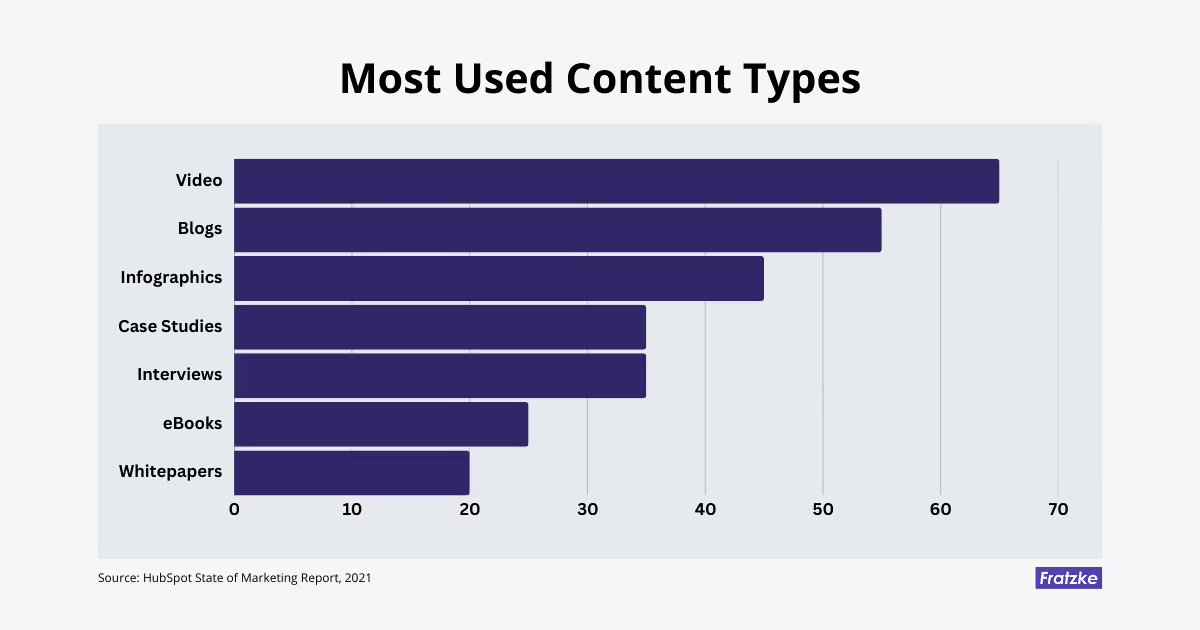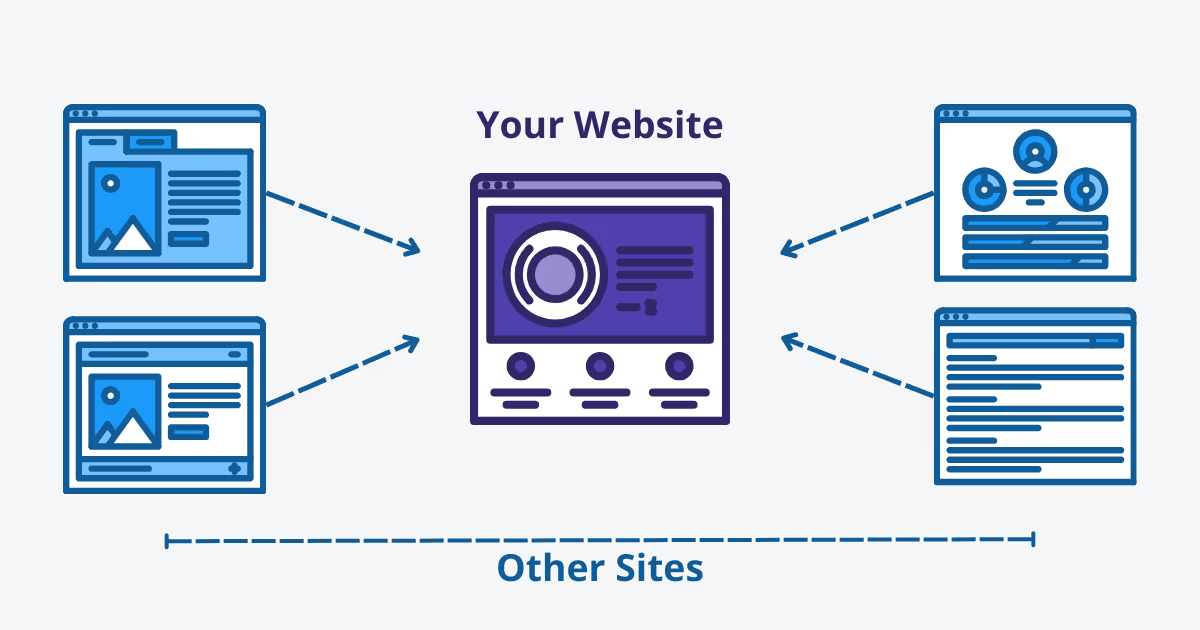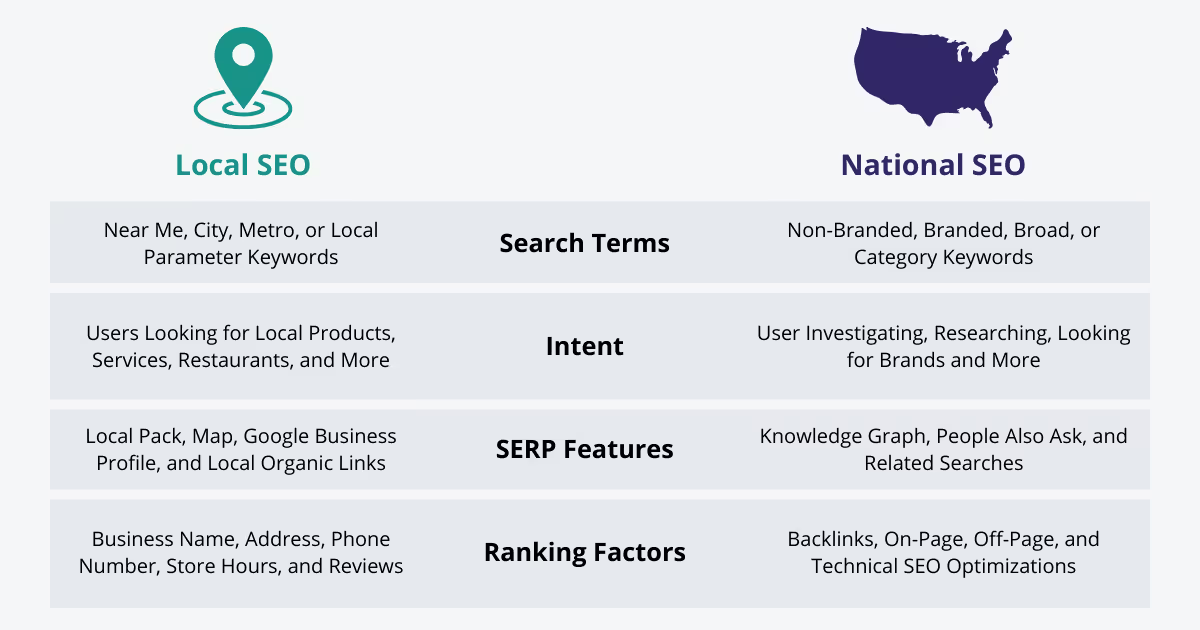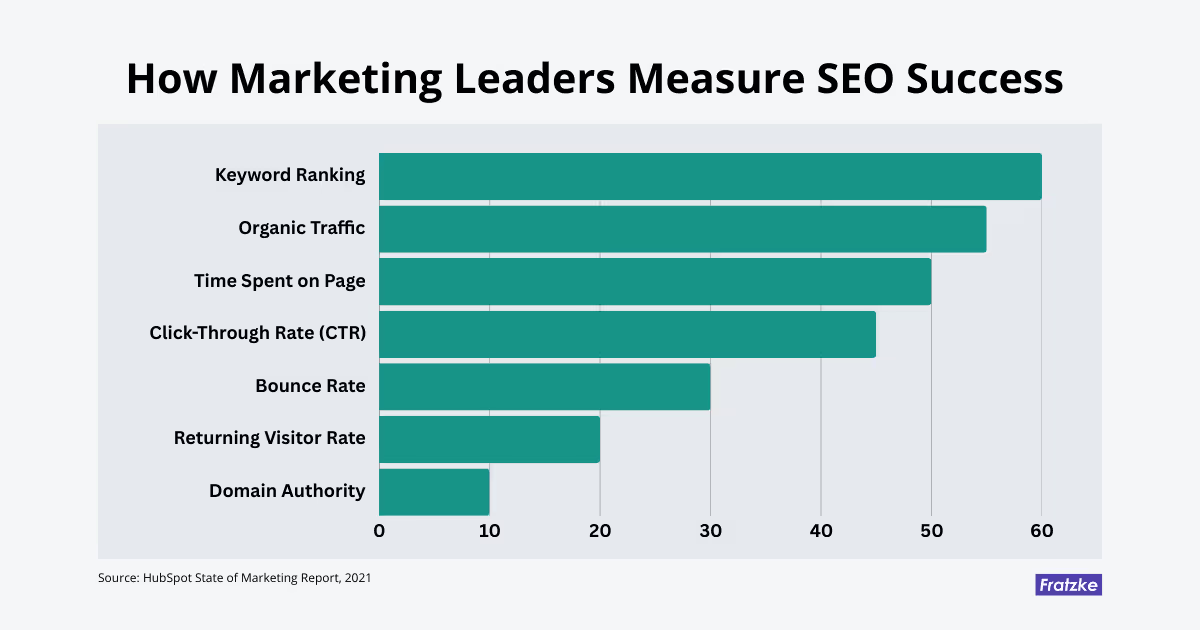How many times has your boss, or your boss's boss, asked, “Why don’t we show up on Google for that?!” Frustrating right? And for good reason. Seeing your brand at the top of Google search results has a huge impact on visibility and the bottom line.
An SEO audit can help.
Organic traffic is one of the most valuable sources of visitors your website can attract, because it often brings highly engaged users who are actively searching for what you offer. That’s why SEO is a powerful and essential tool in a marketer’s toolbox.
In simple terms, Search Engine Optimization, or SEO for short, helps your website rank higher on Search Engine Results Pages (SERPs), driving organic traffic to your website.
If you’re looking to drive more organic traffic, you should strongly consider running an SEO audit. An SEO audit is a crucial part of a comprehensive digital marketing audit. It can help you identify opportunities to improve visibility, attract more qualified visitors, and ultimately convert those users into paying customers.
Table of Contents
What Is an SEO Audit?
An SEO audit is a comprehensive analysis of how well your website is optimized for search engines like Google. It helps identify issues that can help your site rank higher in search results. Audits typically examine multiple aspects of your website, including technical performance, on-page elements, content quality, backlinks, mobile usability, and more.

Why an SEO Audit Is Important
SEO audits are essential because they provide a roadmap for improving your website's visibility in search engine results pages (SERPs). Here are additional SEO audit benefits:
- Discover technical errors that impact indexing
- Improve site speed and user experience
- Uncover keyword and content optimization opportunities
- Strengthen your backlink profile
- Stay updated with algorithm changes
How to Do an SEO Audit, Step by Step
Understanding how to conduct an SEO audit can be broken down into eight different types of SEO audits. Each type helps focus your efforts more effectively:
- Technical SEO Audit: Focuses on backend elements like crawlability, indexing, site speed, HTTPS, and mobile-friendliness.
- On-Page SEO Audit: Examines elements like title tags, meta descriptions, headers, URL structure, internal linking, and image optimization.
- Content SEO Audit: Evaluates content quality, keyword targeting, duplicate content, and content gaps.
- Off-Page SEO Audit: Analyzes your backlink profile, domain authority, anchor text distribution, and social signals.
- Competitive SEO Audit: Focuses on understanding how your website stacks up against direct and indirect competitors in search results.
- Local SEO Audit: Aggregates reviews, NAP consistency, Google Business Profile, local citations, and reviews.
- Featured Snippet SEO Audit: Targets enhancing your visibility in specialized search features and AI-driven results.
- AI GEO Audit: Examines how well your website content is optimized for discovery, interpretation, and citation by AI tools.
Let’s dive deeper into each component of your SEO audit report.
1. How to Conduct a Technical SEO Site Audit
Your technical SEO audit should focus on backend performance, crawlability, indexing, site speed, HTTPS security, mobile responsiveness, and user experience (UX) metrics, such as core web vitals and behavior flow.
This category ensures your site is both accessible to search engines and enjoyable for users, addressing elements like page load speed, navigation clarity, and visual stability.
Steps for running a technical SEO Audit:
- Crawl your website: Leverage tools like Screaming Frog, Semrush, or Ahrefs, to identify broken links, duplicate content, and site architecture issues.
- Check indexing and crawlability: Use Google Search Console to confirm which pages are indexed and fix any crawl errors.
- Double-check the Robots.txt file: Ensure you’re not blocking valuable content from being crawled.
- Review URL structure and internal linking: Ensure URLs are clean and keyword-rich; strengthen internal linking for better content discovery.
- Reduce bounce rates with breadcrumbs: Add breadcrumbs to improve navigation and site hierarchy.
- Improve with structured data: Implement structured data where possible to highlight key information for search engines.
- Check your XML sitemap: Confirm all pages are included and submitted to Google Search Console.
- Ensure a SSL certificate exists: Ensure your site is secure and routes to HTTPS.
- Analyze page speed: Use Google PageSpeed Insights and Core Web Vitals to improve load times and UX.
- Consider mobile-friendliness: Verify your site offers a seamless mobile experience.

2. Run an On-Page SEO Website Audit
An on-page SEO website audit focuses on optimizing the structural and visible elements of individual web pages to improve both user experience and search engine visibility. This type of audit includes refining title tags, meta descriptions, headings, URL structures, and internal linking.
Key on-page factors to assess include:
- Title tags and meta descriptions: Ensure they are unique, keyword-rich, and accurately reflect each page’s purpose.
- Headings and formatting: Use clear, hierarchical heading tags to structure content logically.
- Internal linking: Strategically connect related pages to enhance navigation and distribute authority.
- Image optimization: Include descriptive alt text and ensure fast-loading image files.
- Broken links: Identify and fix any broken links to preserve user trust and SEO value.

3. How to Perform an SEO Content Audit
An SEO content audit evaluates the quality, relevance, and freshness of your website’s content. This involves auditing keyword targeting, ensuring content meets search intent, eliminating duplicate material, and filling gaps in topical coverage.
Key content factors to assess include:
- Content quality: Keep it relevant, valuable, and regularly updated.
- Keyword targeting: Ensure primary and secondary keywords are integrated naturally.
- Freshness: Update or expand older content to maintain relevance.
- Duplicate content: Identify and address any instances to avoid SEO penalties.
- Topical coverage: Fill gaps in your content to strengthen topical authority.

4. Perform an Off-Page SEO Audit
An off-page SEO audit reviews the external factors that influence your website’s authority, trustworthiness, and overall search visibility. This involves analyzing signals that originate outside your website, which search engines use to evaluate your credibility and relevance. It’s about understanding how the wider digital ecosystem views and interacts with your brand.
Key elements to assess include:
- Backlink profile: Evaluate the quality, quantity, and relevance of sites linking to you.
- Domain authority: Track your overall authority score and work on improving it through credible links.
- Anchor text distribution: Ensure a natural mix of branded, exact match, and generic anchor text.
- Toxic links: Identify and disavow harmful or spammy backlinks that could hurt rankings.
- Social signals: Monitor brand mentions and engagement on social media platforms.

5. Run a Competitive SEO Audit
A competitive SEO audit creates a landscape of how your website stacks up against direct and indirect competitors in search results. This process goes beyond simply looking at rankings, it examines your competitors’ strategies, strengths, and weaknesses so you can uncover actionable opportunities.
Key elements to assess include:
- Keyword gap analysis: Identify which high-value keywords competitors rank for, and spot areas where you can outperform them.
- Content strategy comparison: Review competitors’ top-performing pages and topics to find content ideas, formats, and engagement strategies you can adapt or improve upon.
- Backlink comparison: Assess where competitors are earning quality backlinks and explore ways to acquire similar or better links.
- SERP feature presence: Note where competitors appear in featured snippets, People Also Ask boxes, and other search enhancements.
- Technical strengths: Observe site speed, mobile performance, and UX advantages competitors may have.
- Brand visibility: Evaluate how competitors perform in local search, on social media, and across other online channels to understand their broader digital footprint.
Keep Reading: Digital Marketing Audit: How to Conduct a Successful Audit
6. How to Do a Local SEO Audit
A local SEO audit assesses your presence in location-based searches, ensuring NAP consistency, a fully optimized Google Business Profile, accurate local citations, and a strong portfolio of local reviews.
Key factors to review include:
- NAP consistency: Ensure your business name, address, and phone number are identical across all directories, listings, and your website.
- Google Business Profile optimization: Complete all fields, upload high-quality photos, select accurate categories, and post regular updates.
- Local citations: Verify that your business is listed on authoritative local directories and niche industry sites.
- Reviews and ratings: Monitor customer feedback, respond promptly to reviews, and encourage satisfied customers to leave positive ones.
- Local keyword targeting: Include location-specific keywords in your website content, meta tags, and headings.
- Map pack presence: Check if your business appears in Google’s local map pack for target queries and optimize it to improve rankings.
- Schema markup for local business: Implement structured data to help search engines understand your location and service area.

7. Improve Visibility With a Featured Snippet SEO Audit
For your featured snippet audit, focus on enhancing your visibility in specialized search features and AI-driven results.
Key factors to assess include:
- Featured snippet targeting: Identify and optimize content to answer questions succinctly and clearly for snippet eligibility.
- People Also Ask (PAA) optimization: Structure content to address related queries with concise, well-formatted answers.
- Structured data implementation: Use schema markup to help search engines understand and present your content.
- FAQ schema: Add FAQ markup to relevant pages to increase visibility in rich results.
- AI-generated answer readiness: Format content so that it’s easily consumed by AI platforms like Google’s SGE or Bing’s Copilot. See more on Generative Engine optimization (GEO) in the next section.
- Content formatting: Utilize bullet points, numbered lists, and clear headings to improve scannability and retrieval in search features.
Related Article: SEO Consultant - Do You Need One and How to Hire
8. Run an AI GEO Audit
An AI Generative Engine Optimization (GEO) audit examines how well your website content is optimized for discovery, interpretation, and citation by artificial intelligence systems, including large language models (LLMs). This includes both traditional search AI (such as Google’s Search Generative Experience) and third-party AI assistants that surface web content in responses like ChatGPT.
Key factors to assess include:
- Generative Engine Optimization (GEO): Adapt content for AI-driven search interfaces by ensuring it’s authoritative, concise, and structured for machine understanding.
- Natural language optimization: Write in a clear, conversational style to match the way AI models interpret and relay information.
- Entity-based SEO: Use consistent naming for people, places, products, and brands to improve recognition by AI systems.
- Semantic markup: Implement schema.org and other structured data to help AI understand context and relationships.
- Content summarization readiness: Ensure your key points are highlighted in ways AI can easily extract and present.
- AI visibility monitoring: Track when and how your content appears in AI-generated results and adjust accordingly.
E‑E‑A‑T & Other 2025 Ranking Signals
Another SEO factor to include in your SEO audit is aligning your website with the latest Google ranking signals, especially the updated Experience, Expertise, Authoritativeness, and Trustworthiness (E‑E‑A‑T) guidelines. In 2025, search algorithms are increasingly prioritizing content and sites that demonstrate credibility, depth of knowledge, and a positive user experience.
Key factors to assess include:
- (E) Experience: Showcase real-world expertise through case studies, original research, and firsthand insights.
- (E) Expertise: Ensure content is created or reviewed by qualified professionals in your industry.
- (A) Authoritativeness: Build authority with high-quality backlinks, media mentions, and industry partnerships.
- (T) Trustworthiness: Maintain transparent business information, secure HTTPS connections, and clear privacy policies.
- Content authenticity: Avoid AI-generated fluff and focus on well-researched, fact-checked material.
- Alignment with 2025 ranking updates: Stay current with Google’s evolving Core Web Vitals, mobile-first indexing, and new SERP features.

Free SEO Audit Tools
If you're eager to get started, and want to use trusted industry tools for a high-level review, there are some websites that can help you run your SEO audit. Here is a list of free SEO audit tools:
- Google Search Console: Monitor indexing, performance, and crawl issues.
- Google PageSpeed Insights: Test and improve site speed.
- Screaming Frog SEO Spider (Free Version): Crawl websites to scan for errors and optimization opportunities.
- Semrush: Access site audits, keyword research, and backlink analysis with limited free usage.
- SEOptimer: Get a quick overview of site health and recommendations.
- Bing - Mobile Friendliness Test Tool: Check how well your site performs on mobile devices.
- Pingdom Website Speed Test: Measure website loading speed and identify performance bottlenecks.
SEO Audit Checklist
If you’re looking for a quick SEO health check-up, here’s a checklist with eight essential items to review. Start with your homepage, then move on to other high-traffic pages to ensure your most valuable content is optimized and performing at its best.
- Crawl your website: Use tools like Screaming Frog, Sitebulb, or Ahrefs.
- Check indexing and crawlability: Verify pages indexed in Google Search Console.
- Analyze page speed: Use PageSpeed Insights or Pingdom.
- Assess mobile usability: Run Google’s Mobile Friendly Test.
- Review URL structure and internal linking.
- Inspect meta tags and headings.
- Evaluate content quality.
- Analyze backlinks: Use Semrush.
Keep Reading: The Complete Guide to B2B Website Design
Free SEO Audit vs. DIY vs. Professional SEO Audit: What’s Right for You?
When considering your next steps, there are three common SEO audit options: Free, DIY, and Professional. Each comes with trade-offs, so the best choice will depend on your business goals and desired outcomes.
Best SEO Audit For Your Business
If you want a quick snapshot of your SEO performance, a free or DIY audit could be the right fit. However, if your SEO is underperforming or you’re aiming for significant organic growth, a professional SEO audit is often the smartest choice, offering a valuable outside perspective and deep expertise. Let’s break down the pros and cons of each SEO audit option.
Free SEO Audits
Free SEO audits are often provided through online tools or as lead magnets by agencies. They offer quick, no-cost insights into basic site health, performance, and optimization opportunities. While these can be potentially helpful, the results can also be biased or exaggerated to sell a deeper audit or ongoing SEO services.
- Pros: No cost; fast results; easy to run; and great for initial assessments or small businesses starting SEO efforts.
- Cons: Limited depth; may lack customization for your business; and often highlight only surface-level issues without detailed action plans.
DIY SEO Audits
A DIY or internal SEO audit is typically conducted by a member of your in-house team to assess the business’s SEO performance. It’s a cost-effective way to optimize for search, offering full control and alignment with internal goals. However, it can be time-consuming, and blind spots may occur since the same team responsible for implementing the SEO strategy in the first place is also measuring its performance and providing critical feedback.
- Pros: Can be more cost-effective if you have the internal expertise.
- Cons: Can be time-consuming; may lack advanced technical skills; and risks overlooking issues due to familiarity with the site and internal bias.
Related Article: How to Perform a Website Audit to Boost SEO and Maximize Conversions
Professional SEO Audits
A professional SEO audit is conducted by experienced consultants or agencies who bring specialized skills, premium tools, and industry expertise to deliver a thorough evaluation of your website’s performance. This type of audit goes beyond surface-level checks, uncovering complex technical, content, and strategic opportunities that may be missed internally.
- Pros: Offers deep expertise; access to premium tools, objective insights, and comprehensive action plans.
- Cons: Come with higher costs; less direct control; and potential dependence on outside experts.
How Much Does an SEO Audit Cost?
The cost of an SEO audit can range widely depending on the scope, depth, and expertise of the provider. Basic audits, often automated or template-based, may cost as little as $300 to $500, while comprehensive, manual audits from experienced professionals can range from $10,000 to $15,000 or more. Factors like website size, industry competitiveness, and the inclusion of strategic recommendations or implementation support will also influence the price.
How Many Times Should You Audit Your Site for SEO?
For most websites, conducting a comprehensive SEO audit at least once or twice a year is a good baseline. However, the ideal frequency depends on factors like industry competitiveness, the pace of content updates, and the size of your site. Highly competitive industries or rapidly changing sites, such as e-commerce stores with frequent product updates, may benefit from quarterly audits to catch technical issues, track keyword performance shifts, and spot new optimization opportunities.
In between full audits, running lighter, targeted checks every 1 to 2 months on key performance areas, such as page speed, indexation, and backlink health, can help you stay ahead of potential problems before they impact rankings. Ultimately, a consistent audit schedule ensures your SEO strategy remains agile, data-driven, and aligned with changing algorithms.
Need an Expert SEO Audit?
At Fratzke, we go beyond automated reports. Our expert-led SEO audits uncover not just what’s broken, but why it matters, and how to fix it. Our actionable SEO audits deliver a custom action plan and SEO strategy tailored to your business goals. Schedule Your Free Consultation
Related Articles
- 100 of the Best Website Designs to Inspire You in 2025 (A-Z)
- Marketing Audit - What is an Audit and How to Do One
- Digital Marketing KPIs & Benchmarks - Compare Your Performance











